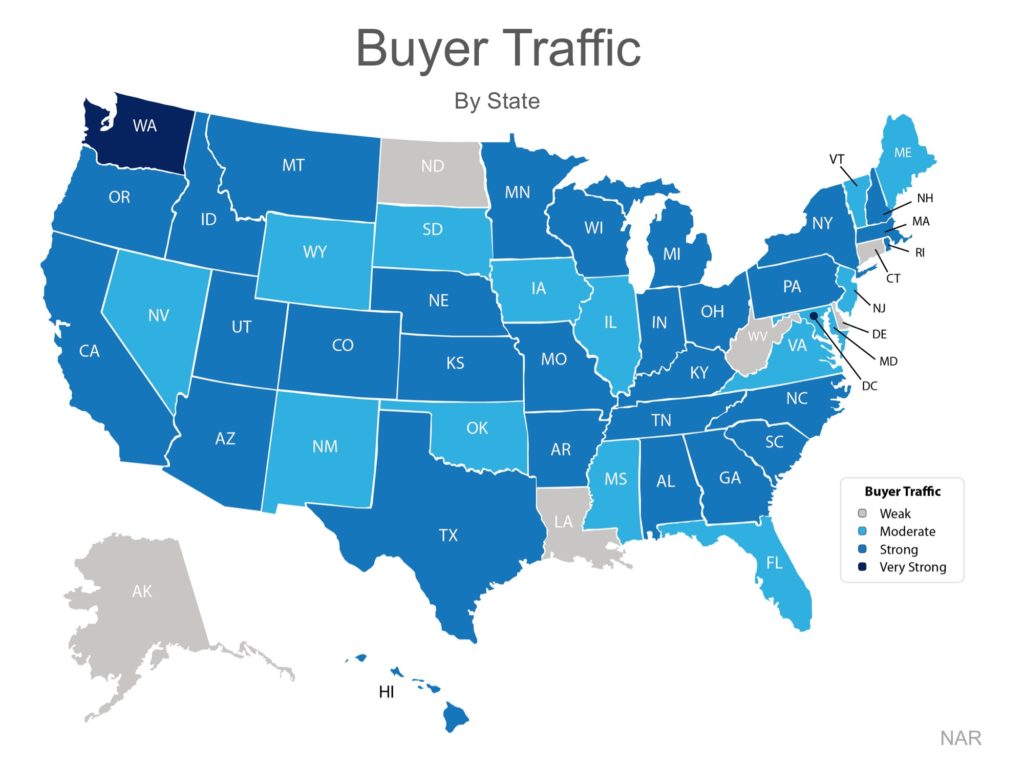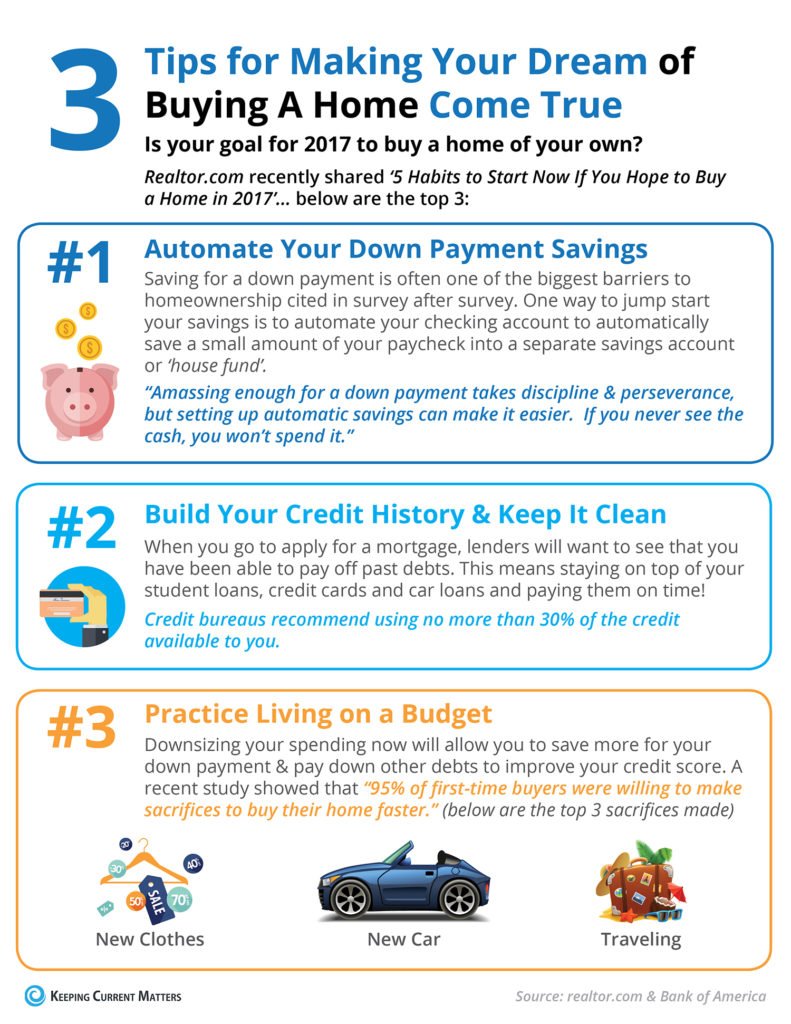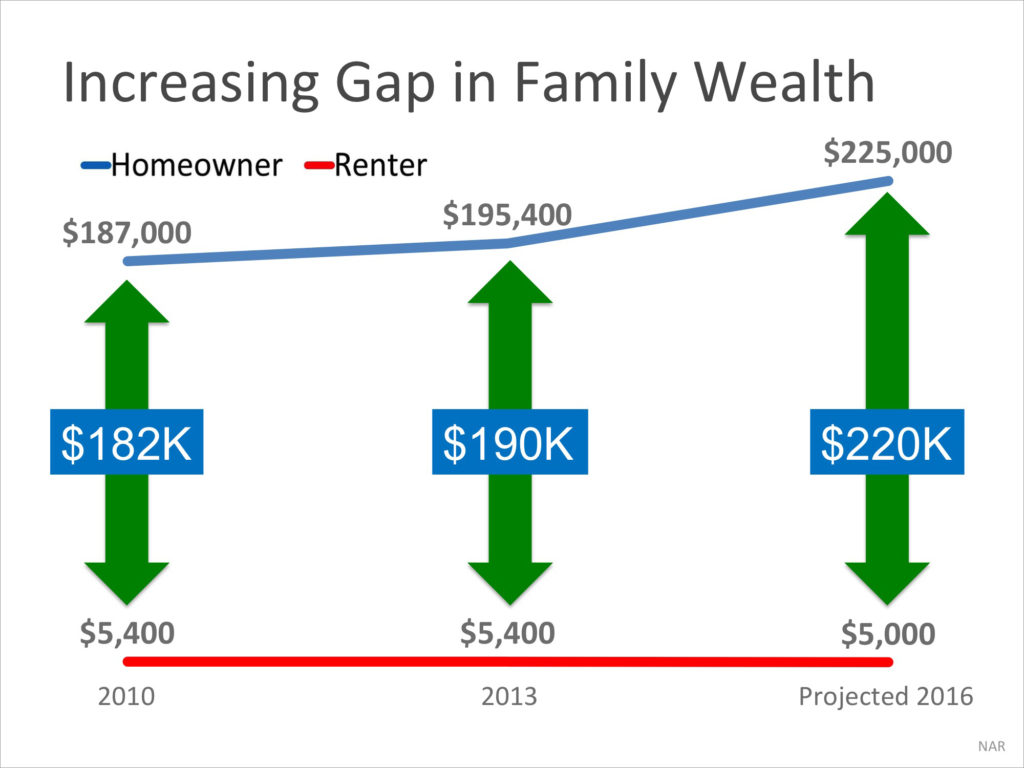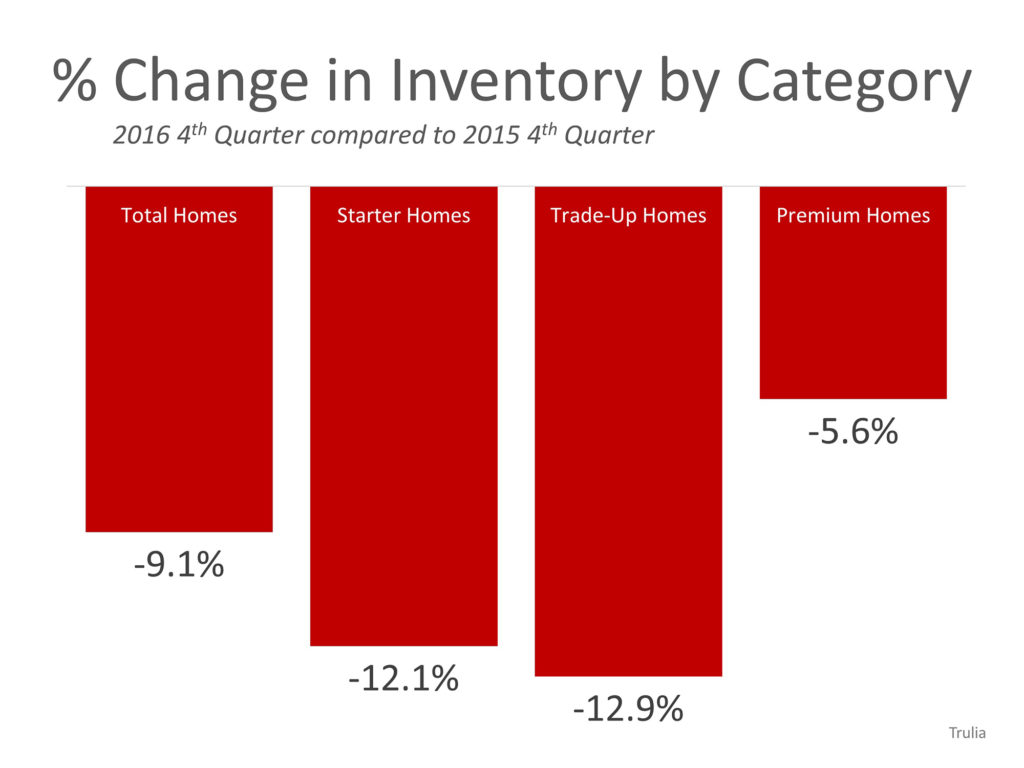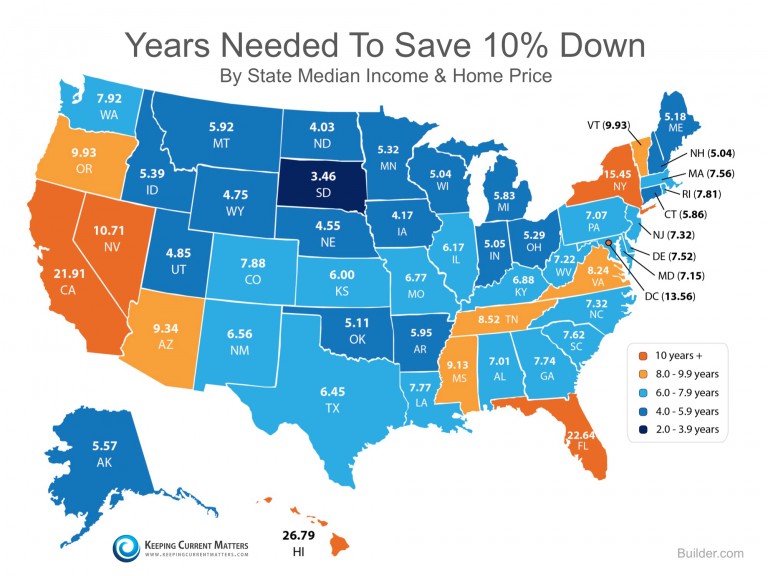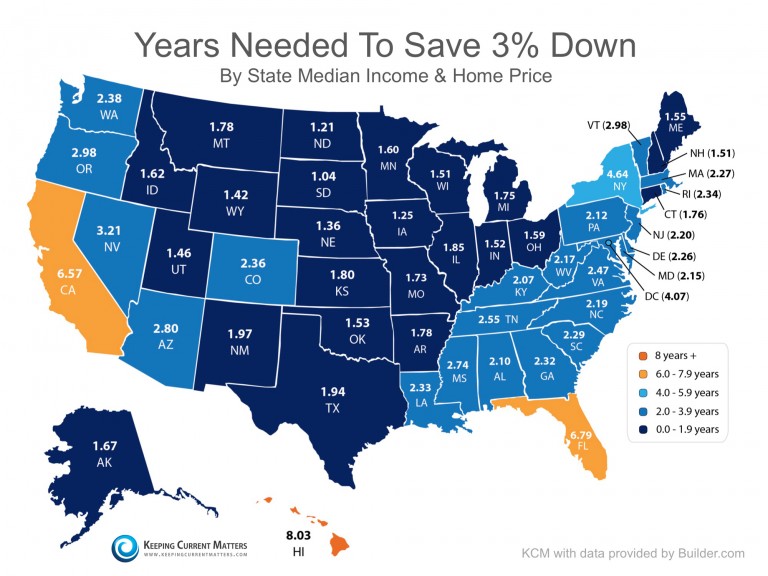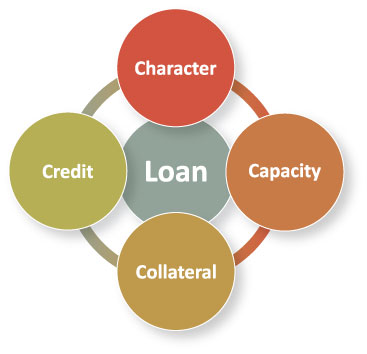Here are four great reasons to consider buying a home today instead of waiting.
1. Prices Will Continue to Rise
CoreLogic’s latest Home Price Index reports that home prices have appreciated by 6.9% over the last 12 months. The same report predicts that prices will continue to increase at a rate of 4.8% over the next year.
The bottom in home prices has come and gone. Home values will continue to appreciate for years. Waiting no longer makes sense.
2. Mortgage Interest Rates Are Projected to Increase
Freddie Mac’s Primary Mortgage Market Survey shows that interest rates for a 30-year mortgage have remained around 4% over the last couple months. The Mortgage Bankers Association, Fannie Mae, Freddie Mac & the National Association of Realtors are in unison, projecting that rates will increase by at least a half a percentage point this time next year.
An increase in rates will impact YOUR monthly mortgage payment. A year from now, your housing expense will increase if a mortgage is necessary to buy your next home.
Call or TEXT us today to discuss loan possibilities. 619-544-6444 or email us at SanDiego@benchmark.us
3. Either Way, You are Paying a Mortgage
There are some renters who have not yet purchased a home because they are uncomfortable taking on the obligation of a mortgage. Everyone should realize that, unless you are living with your parents rent-free, you are paying a mortgage – either yours or your landlord’s.
As an owner, your mortgage payment is a form of ‘forced savings’ that allows you to build equity in your home that you can tap into later in life. As a renter, you guarantee your landlord is the person with that equity.
Are you ready to put your housing cost to work for you?
4. It’s Time to Move on with Your Life
The ‘cost’ of a home is determined by two major components: the price of the home and the current mortgage rate. It appears that both are on the rise.
But what if they weren’t? Would you wait?
Look at the actual reason you are buying and decide if it is worth waiting. Whether you want to have a great place for your children to grow up, you want your family to be safer or you just want to have control over renovations, maybe now is the time to buy.
If the right thing for you and your family is to purchase a home this year, buying sooner rather than later could lead to substantial savings.
#carlspiteriteam #benchmarkmortgagecarlspiteri #CAlender #mortgage #BenchmarkMortgageCarlSpiteri #weloveourclients #SDlender #soCalLender #homeloans #sdhomes #lendersandiego #homemortgage #loans #sandiegohomes #smarthomebuyerworkshop #prepp #sold #loveourclients #WantToMove #BuyMyHouse #RealEstate #NewHome #HouseHunting #HomesForSale #Investment #Mortgage #Realtor




